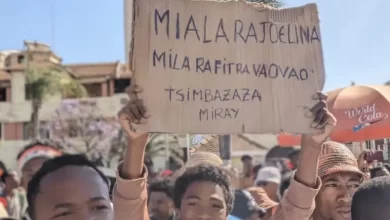Legal Laws That Transcend African Borders

Africa, a continent of 54 nations with diverse histories, cultures, and legal systems, has long sought ways to establish unified legal principles to foster cooperation, trade, and justice. Despite the diversity, several laws and frameworks transcend national boundaries, creating a shared legal culture that binds African countries. These laws often emerge from regional agreements, continental treaties, and international conventions, reflecting Africa’s quest for unity amidst diversity.
This article explores the key legal frameworks, treaties, and laws that transcend borders, the countries involved, and their tangible impacts on the continent’s socio-economic and political fabric.
African Union Frameworks: A Continental Approach
The African Union (AU) stands at the heart of legal harmonization efforts. Founded in 2001, the AU replaced the Organization of African Unity (OAU) to create a more dynamic body for regional integration.
1. African Charter on Human and Peoples’ Rights (Banjul Charter)
Adopted in 1981, this cornerstone document outlines civil, political, economic, social, and cultural rights. The charter applies to all AU member states, promoting accountability and justice. For instance:
- South Africa and Kenya have used the charter to strengthen their constitutions’ human rights clauses.
- Countries like Nigeria and Ghana have incorporated its principles into their judicial decisions, especially in cases involving minority rights.
2. African Continental Free Trade Agreement (AfCFTA)
Ratified by over 40 African countries, AfCFTA creates the world’s largest free trade area by member states. It fosters cross-border trade by harmonizing tariffs and reducing non-tariff barriers.
- Morocco, Egypt, and South Africa have leveraged this agreement to expand trade partnerships, while smaller economies like Rwanda and Eswatini benefit from market access to larger economies.
3. Maputo Protocol
Focused on women’s rights, this protocol has been ratified by over 40 nations. It impacts countries like Senegal and Botswana, promoting gender equality through legislative reforms and improved access to justice for women.
Regional Economic Communities (RECs): Bridging Gaps
RECs serve as building blocks for integration, uniting countries within sub-regions under common legal frameworks.
ECOWAS (Economic Community of West African States)
With 15 member states, ECOWAS promotes the free movement of goods, services, and people.
- Laws enabling visa-free travel among Ghana, Nigeria, and Benin encourage regional trade and cultural exchange.
- The ECOWAS Court of Justice in Abuja ensures member states adhere to agreed protocols, as seen in landmark rulings on election disputes in Gambia and human rights cases in Sierra Leone.
SADC (Southern African Development Community)
SADC’s legal frameworks address trade, environmental protection, and cross-border infrastructure.
- Countries like Zimbabwe and Mozambique collaborate on shared water resources under SADC’s transboundary water management protocols.
- Namibia and Botswana have also resolved border disputes through SADC’s legal mechanisms.
EAC (East African Community)
Comprising Kenya, Uganda, Tanzania, Rwanda, Burundi, and South Sudan, the EAC fosters legal harmonization for cross-border investment. For instance, the EAC’s customs union simplifies trade for member states and reduces regulatory bottlenecks.
OHADA: Harmonizing Business Laws
The Organization for the Harmonization of Business Law in Africa (OHADA) covers 17 Francophone African countries, including Côte d’Ivoire, Senegal, and Cameroon.
OHADA standardizes laws on:
- Commercial contracts: Ensuring predictability for investors.
- Bankruptcy: Providing uniform rules for cross-border insolvency cases.
- Arbitration: Offering dispute resolution mechanisms to attract foreign investment.
For example, a business dispute involving entities in Mali and Chad can be resolved under OHADA’s unified legal code, ensuring consistency and fairness.
Cross-Border Criminal Laws and Justice
The fight against crime often transcends national borders. African countries collaborate through extradition treaties and regional courts.
African Court on Human and Peoples’ Rights (AfCHPR)
Based in Arusha, Tanzania, the court handles human rights violations across the continent. Cases from Burkina Faso and Togo highlight its growing relevance in holding states accountable for rights abuses.
Anti-Terrorism and Extradition Treaties
- Nigeria and Cameroon cooperate under regional agreements to combat Boko Haram.
- Similarly, Kenya and Somalia collaborate to address cross-border terrorism through shared intelligence and legal agreements.
Environmental and Natural Resource Laws
Africa’s rich biodiversity and shared resources necessitate transboundary legal agreements.
African Convention on the Conservation of Nature and Natural Resources
This treaty guides sustainable development and environmental conservation across member states.
- Tanzania and Kenya work together to protect wildlife migration corridors for elephants and wildebeests in the Serengeti-Mara ecosystem.
- Shared water bodies like Lake Victoria involve legal cooperation among Uganda, Kenya, and Tanzania.
Intellectual Property Laws
Two major organizations drive IP law harmonization:
- ARIPO (African Regional Intellectual Property Organization): Covers Anglophone Africa, helping countries like Zimbabwe and Kenya protect patents and trademarks.
- OAPI (Organisation Africaine de la Propriété Intellectuelle): Covers Francophone Africa, benefiting countries like Gabon and Senegal.
These frameworks promote innovation by providing consistent protection for creators and businesses.
Shared Customary Laws: A Cultural Legacy
In addition to formal treaties, many African countries share customary laws rooted in indigenous traditions. These laws influence areas like:
- Inheritance: Similar customary rules in Ghana, Nigeria, and Sierra Leone prioritize lineage in property distribution.
- Land Ownership: Tribal land ownership practices are prevalent across Uganda and Rwanda.
The Impact of Transnational Laws
The harmonization of laws has brought tangible benefits, including:
- Increased Trade: Agreements like AfCFTA reduce barriers and increase intra-African trade.
- Justice Accessibility: Courts like the AfCHPR provide remedies for human rights violations.
- Environmental Protection: Shared laws address pressing issues like climate change and resource management.
However, challenges remain, including differences in legal traditions (common law, civil law, and customary law) and uneven implementation of treaties.
Conclusion
Africa’s shared legal frameworks demonstrate the continent’s commitment to unity and development. While significant progress has been made, greater efforts are needed to ensure these laws are effectively implemented and benefit all citizens. As Africa continues to evolve, these transnational legal systems will remain crucial in shaping its future.
This shared legal culture is more than a set of rules—it is a testament to Africa’s resolve to work together for the common good.




